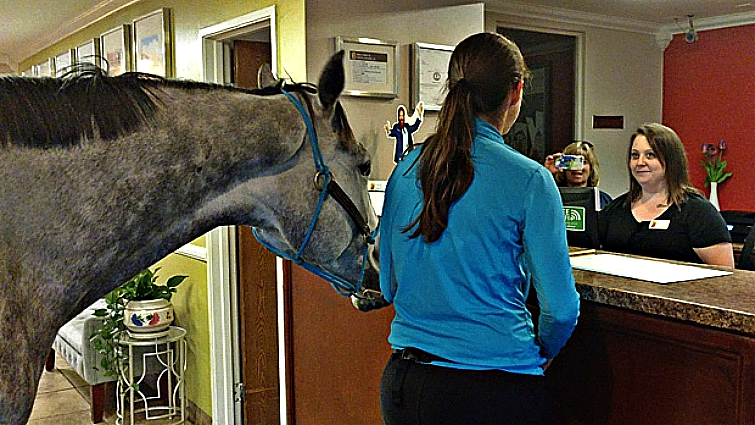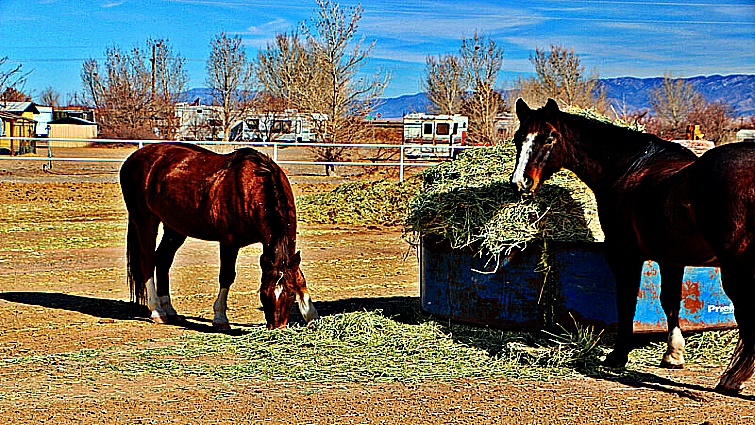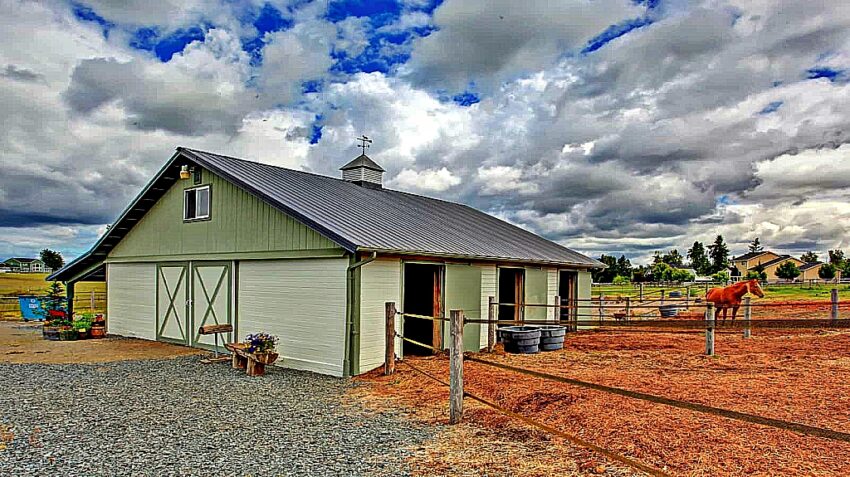1.Use your resources. Rely on word of mouth when you can. Turn to friends, social media, and veterinarians or other professionals for recommendations on travel routes and places to stay with horses.
2.Plan ahead. Several websites list horse motels. Most fairgrounds also have decent facilities. Some even offer overnight camping for people. Do your research, call ahead, and ask questions.
3.Get an early start. If you can arrive at your destination in the daylight, it’ll be easier for you, safer for your horses, and less of an imposition on your host. Most horse motels are private facilities and homes. At Sweet Pepper Ranch we appreciate when our guests arrive before 10 p.m., as we have day jobs and other commitments that make late-night arrivals a hassle for us, our other guests, and our neighbors. Plus, it’s less stress on you when you can see where you’re going and inspect the digs in daylight. While you’re at it, use technology to keep managers of your horse motel destination informed of your expected arrival time—another way to be respectful of their time and ensure they will be ready for you and your horse.

4.Be kind. We often have guests arriving cranky, hungry, and anxious. I understand how stressful travel can be, but raising voices at each other, your kids, or your animals only heightens everyone’s anxiety levels. Travel with healthy snacks—veggies, fruit, water, popcorn, cheese sticks—to avoid getting “hangry.”
5.Practice loading and unloading.- Training your horses far in advance of your travel date, especially if they aren’t frequent travelers, is very helpful. We see many horses and owners that are uncomfortable with the loading and unloading process, which makes things potentially dangerous and more stressful. Find a professional that you and your horse can learn from before embarking.

6.Carry an up-to-date health certificate and negative Coggins. Talk with your veterinarian to find out what paperwork you should carry and how far in advance you need to get it. If you have concerns about diseases in the areas you are traveling to or through, your vet should be able to connect you with either the state veterinarian’s office at your destination or other professionals.

7.Go over the details. When choosing a horse motel, look for one where your horses can move around, lie down, or even roll, such as in a pen. They must have free access to clean water and be allowed to eat with their head lowered, so nasal passages can drain. Good ventilation is a must. If you have multiple horses, it’s nice if they can see or even touch each other. Once at the facility, inspect walls to be sure they are free of nails or sharp objects and extend to the floor, so your horse won’t get his feet trapped underneath.

